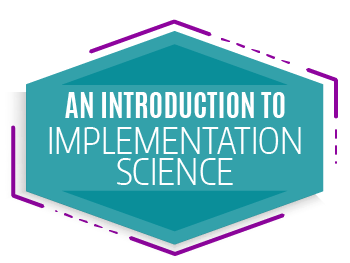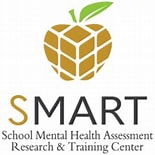Implementation science seeks to address the critical question of how to efficiently and effectively deliver evidence-based interventions to those who need them, with greater speed, fidelity, quality, and relevant coverage.
Studying how implementation process and context impact evidence-based care delivery accelerates the translation from research to population-level benefit. Close examination of implementation outcomes and implementation strategies used in the delivery of evidence-based care provides critical information to scale-up or sustain that care where it is most needed.
This website has three goals: 1) demystify implementation science and provide resources to anyone who wants to learn more; 2) provide a roadmap to planning research, from formulating implementation science questions to sharing results with the world; and 3) amplify the work of the large implementation science community at the University of Washington who consistently push the field forward.
For those new to implementation science, we suggest starting with What is implementation science?, our most popular resource. This page is filled with articles, videos, and other web resources to help you get oriented to the field. It can be useful to understand how implementation science is used in both your own field or health focus, as well as how it is used in very different fields and specialties. Visit Who uses implementation science? to learn more about how different fields leverage implementation science.
For those who wish to design implementation research, we provide a step-by-step pathway through the decisions you will need to make. Looking for examples of how different aspects of implementation science are being used by the UW community? Visit the Library to explore our collection of UW-coauthored implementation science publications and to find examples of key implementation science concepts in action.
✪ Knowledge translation in surgery: a scoping review of implementation strategies, effectiveness and contextual barriers and enablers
✪ Exploring implementation strategies in evidence-based open streets programs for promoting physical activity in the Americas: a scoping review
✪ Pilot randomized controlled trial to assess the effectiveness of a heat risk reduction decision support platform and barriers and facilitators of its implementation
✪ Strategies to improve healthcare team communication structure and quality in resource-variable childhood cancer hospitals (TeamTalk): a study protocol
✪ Perceptions and practices of long-acting injectable antipsychotic administration in community pharmacies within Washington state: A qualitative implementation science study
✪ “Though there are some challenges, we try our best to follow the guidelines”: a qualitative study exploring determinants of providing guideline-adherent care to hospitalized children in Kenya
✪ Enduring contributions to implementation science: Honoring the legacy of Bryan R. Garner
Implementing Payer Partnerships for Patient Care Programs within Clinically Integrated Networks of Community Pharmacies: A Qualitative Study
Tailored strategies to increase the use of an evidence-based psychotherapy for posttraumatic stress disorder: A stepped-wedge randomized trial in military clinics
✪ Process evaluation and lessons learned from the formation of a multi-sector partnership: the Healing Experiences of Adversity among Latinos (HEALthy4You)
✪ A pragmatic approach to estimating the cost to deliver and participate in implementation strategies
TB PrEP – Integrating HIV prevention with TB household contact evaluation
Jennifer Ross, MD, MPH
Examining the Implementation and Impact of School Resource Officer Policy Reform in the United States
Keith Hullenaar, PhD
Scaling up integrated PrEP delivery in Kenyan maternal and child health clinics for pregnant and postpartum women
Anjuli Wagner, PhD
Implementation Science Centers at the University of Washington
Promoting high-quality, culturally responsive programs, practices, and policies to meet the full range of social, emotional, and behavioral (SEB) needs of students in both general and special education contexts.
Creating new implementation science training opportunities for junior CFAR researchers, fostering new and innovative research, and ultimately improving the speed, efficiency, and quality of efforts to translate scientific evidence on HIV prevention and care into effective, large-scale health programs.
Operating under the Department of Global Health, LAPIS serves as a dynamic research and education hub. The LAPIS mission is to foster collaboration and expertise in health policy and health systems within an international context. Guided by our motto of “effective implementation at scale,” we connect students, staff, and faculty with intramural partners.
Optimizing Implementation in Cancer Control: Improving cancer outcomes through optimized evidence-based intervention implementation in community and clinical settings across the continuum of cancer treatment and care.
Optimizing Evidence-Based Practice Implementation for Clinical Impact: Stakeholder-driven implementation of youth mental health services in community settings.

The Department of Global Health Implementation Science Program
Click to learn more about who we are, the work that we do, and the resources we provide.

















